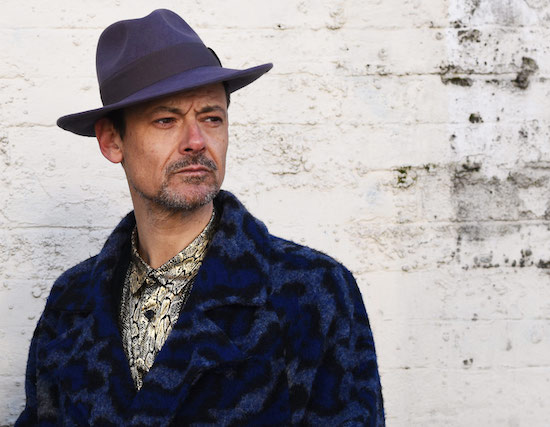"Originally I listened to music from going to the library. Where I lived, I was able to choose between quite a few different libraries, and between them, you could actually get quite a lot of eclectic stuff." Pete Wareham is telling me over the phone me about his teenage years, the pre-internet days when you actually had to scour through physical piles of records or CDs to find new music. "I moved to London and the library thing stopped", he continues. "Then it became about going to Tower Records. You’d read the reviews and go there and spend 10 or 15 quid on a CD. So I’d go and spend 100 quid, which at the time was an enormous amount of money. You’d come back with 8 or 10 CDs. Three or four of them would be alright and the rest of them would be a bit crap. It was a really laborious thing."
This early fascination with seeking out new sounds meant he went from a young trad jazz enthusiast to a global music connoisseur, absorbing the late 60s sounds of Hendrix, The Velvet Underground and The Doors, as well as the more experimental free jazz of John Coltrane and Pharaoh Saunders along the way. But it was music from Nubia – the region of southern Egypt and northern Sudan – that really captured his imagination. "A lot of that stuff was wedding music", he explains. Then, beginning in the 1950s, construction work started on the Aswan Dam in the Nile Valley. "They basically flooded Nubia. The whole civilisation was kind of wiped out. So they had to migrate and move to Cairo. A lot of this music was about trying to keep the Nubian language alive and trying to speak up for people who had been kicked out of their country. It became quite political but it grew from party music, so it had that energy, but quite a serious message as well."
Melt Yourself Down, the raw, hyperactive, and relentlessly creative ensemble he founded in London in 2012, began as a project to try and reimagine the unique rhythms and pentatonic melodies of Nubia. Grounded in a noisy, punk aesthetic but also informed by a scholarly and outward-looking appreciation of different musical traditions, the band borrow from a number of sources but manage to sound completely singular. With their new album, 100% Yes, they’re also unashamedly aiming for radio airplay. "I wanted the songs to get on the radio, which I know sounds quite materialistic, but I love that feeling of something going on the radio and people responding to it and enjoying it, and it feeling like part of the fabric of our culture. It’s a real privilege as a musician to have your songs on the radio."
100% Yes is out on Decca Records on 27 March. Click the image below to begin reading Wareham’s Baker’s Dozen selections


